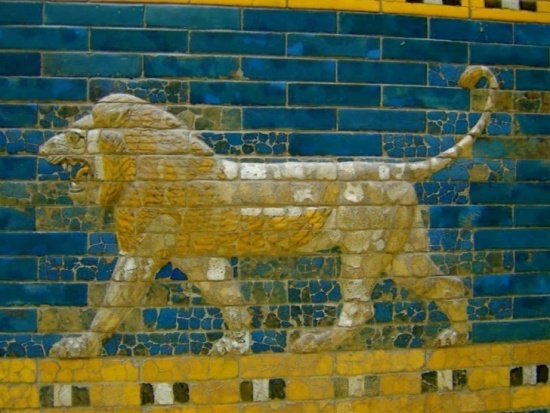 The Eighth in a Series of Sermons on 1 Peter
The Eighth in a Series of Sermons on 1 Peter
All of us have consciences which accuse us because we have all sinned against God and disobeyed his commandments. And so whenever we suffer or are persecuted by those with power over us, there is a little voice within which says to us, “why, of course, you are suffering.” “God is punishing you because you did this, or because you did that.” To those first century Christians of the Diaspora undergoing difficult trials, and no doubt, wondering if God has abandoned them because of something they had done to displease him, Peter offers a wonderful word of encouragement, something which can silence the accusatory voice, as well as remind us of the promise that no matter what happens in this life, everything will turn out in the end just as God has promised. God has given to us a suffering Savior, who has died for our sins. And God has given us a tangible promise (the waters of baptism) that he will save his people–his elect exiles–on the day of judgment.
We are continuing our series on 1 Peter, and I am again reminded of the difficulties in not being able to preach through a book like 1 Peter in bigger chunks, or ideally, in one sermon. Our text this time (vv. 18-22 of 1 Peter 3) is the conclusion to the preceding section (vv. 2:11-3:17). The closing verses of chapter 3 are intended to remind those sufferers whom Peter has been addressing of the meaning of Christ’s suffering on behalf of his fellow sufferers. Jesus’ perfect humility and suffering as the God-man took him to the cross. His death saves us from our sins–even those sins we committed when we have responded to those who curse and revile us with curses and reviling of our own. Our text speaks a word of pardon to all of us who have cursed and reviled our enemies, and who have sought to take vengeance into our own hands, and who have not properly submitted to those authorities mentioned by the Apostle. In effect, Peter follows his series imperatives–“do this”–with a wonderful indicative–Jesus’ death covers our sins when we fail to comply with those imperatives which Peter has set forth. And hearing the indicatives, in turn, gives us a desire to obey the imperatives.
In the previous section (vv. 8-17), Peter instructs Christians not curse and revile those who curse and revile us, but rather to return to them a word of blessing. Christians are to do this because God hears the prayers of his oppressed people and promises that he will deliver us from those who have wronged his people. Peter understands how difficult this is to do, which is why he offers a word of encouragement from Psalm 34, before reminding us that Jesus’ death removes the guilt of our sin and brings us to God. In the section of Peter’s epistle we are covering (vv. 18-22), Peter describes the benefits we receive from Jesus’ humility and suffering. Jesus dies for us and in our place, so that our sins are forgiven. In imitating the humility of Jesus, Peter reminds us, Christians point their oppressors back to the sinless Savior in whom alone men and women may be saved, and so that Christians may receive better treatment from the hands of their oppressors.
In a letter such as this–one closely tied to specific historical circumstances–some background is important to enable us to understand why Peter addresses the issues he does, and so that we can draw proper application in our own circumstances. Peter is writing to a group of persecuted Christians in Asia Minor. Although they have been cast from their homes, and are now aliens in their own county, Peter reminds them that they are nevertheless elect exiles of God, a chosen race, and a royal priesthood. The Apostle knows full-well that his readers are facing very difficult times. Repeatedly, Peter exhorts these Christian sojourners to endure their trials patiently, and to wait for the Lord to deliver them. Yet, Peter also reminds them that because they have been set apart by God (sanctified), and sprinkled with the blood of Jesus, they are heirs to a glorious heavenly inheritance which exceeds anything we can imagine. Christians, Peter says, must keep this promise before our eyes, especially whenever God calls us to endure times of trial. But this is the pattern of the Christian life. The cross and the crown of thorns precedes the empty tomb and our glorious entrance into the presence of the Lord.
To read the rest of this sermon, Click Here
 Monday, April 11, 2016 at 10:48AM
Monday, April 11, 2016 at 10:48AM Sunday Morning, April 17: Rev. Andrew Compton will be preaching from the Book of Ezekiel. Our worship service begins at 10:30 a.m.










